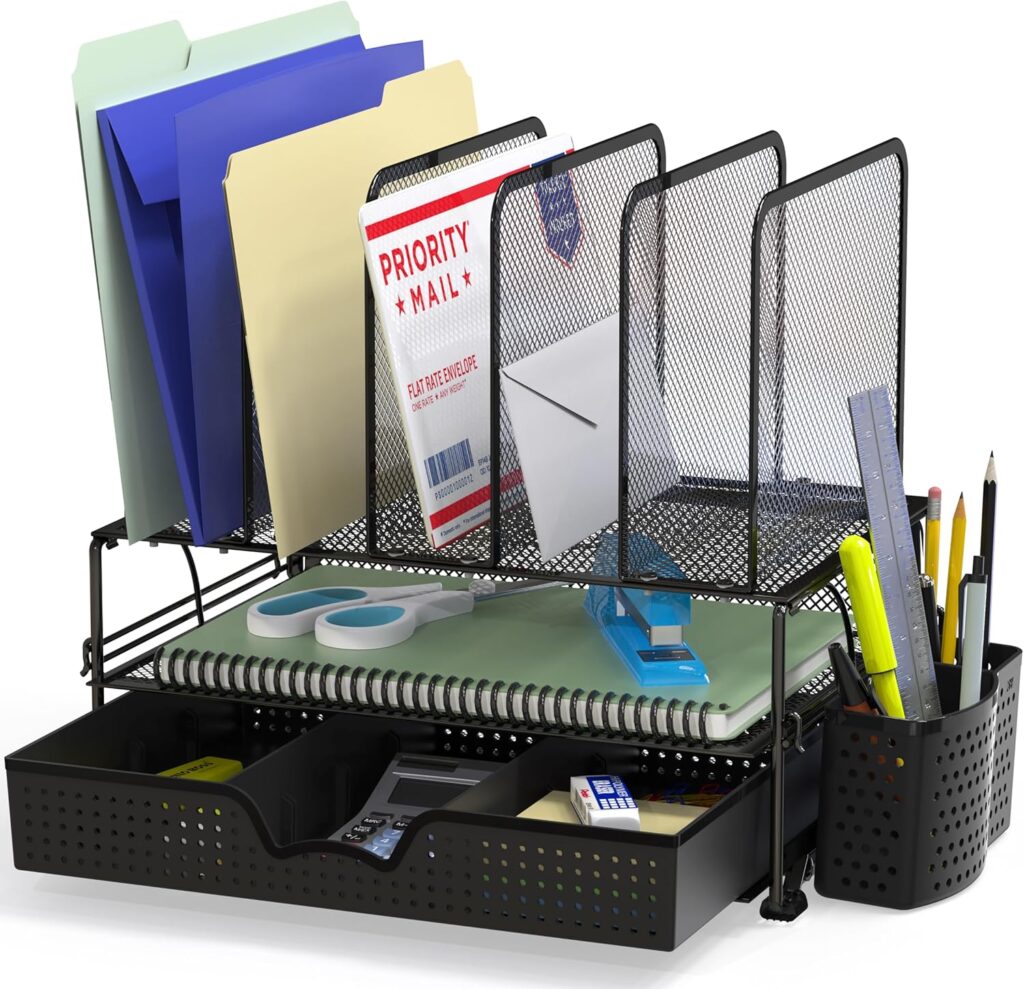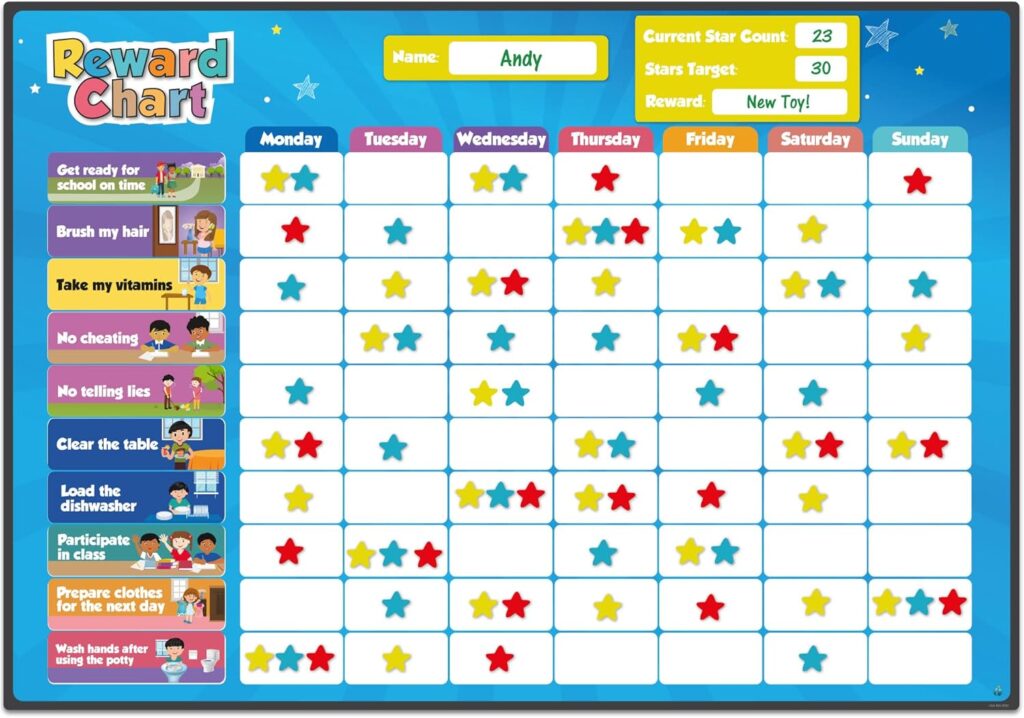If you’re looking to help your child reduce the stress that comes with homework, you’re not alone. Homework is one of the biggest sources of stress for kids today, and it can sometimes feel like an uphill battle, not just for them, but for you as well. Whether it’s dealing with difficult assignments, procrastination, or just the sheer amount of work, the right strategies and tools can help create a much more positive and productive experience for everyone.
Create a Comfortable Study Space
One of the most effective ways to reduce homework stress for kids is to ensure that they have a comfortable and distraction-free study space. A dedicated spot for studying—ideally one that’s away from the TV or other distractions—is crucial to help them concentrate. Make sure the area is well-lit and comfortable so that your child feels at ease while studying.

A great product to help with this is an ergonomic desk chair. The Hbada Ergonomic Office Chair (available on Amazon) is a highly-rated choice that many parents recommend for its comfort and support. Having a comfy chair can make long study sessions more bearable, and help prevent issues like back or neck pain. Pair that with a simple desk organizer, like the SimpleHouseware Mesh Desk Organizer, to help keep all their school supplies in order and reduce unnecessary stress caused by clutter.

Set Realistic Homework Goals
Sometimes the best way to reduce stress is to break big assignments into smaller, more manageable tasks. This can help your child stay focused and avoid feeling overwhelmed. If your child has a large project, try setting smaller, daily goals that they can accomplish one step at a time.
Using a visual schedule can be very helpful. Consider a whiteboard calendar, like the Magnetic Dry Erase Calendar for Fridge by U Brands, which comes with high reviews. Kids find it helpful to see a clear outline of what needs to be done and when it’s due. This way, assignments feel less overwhelming, and it’s easier to stay on track.

Develop a Routine
Having a consistent schedule is key to reducing stress. When kids know what to expect, they’re less likely to procrastinate or feel anxious about homework. Set up a dedicated homework time each day and be consistent with it. This could be right after school or after a snack break—whatever works best for your child’s energy level and your family’s schedule.
Including breaks is also essential. A timer, like the Time Timer MOD, can help manage time effectively. This timer is popular for its visual countdown, making it easy for kids to understand how much time they have left for a task or a break. Knowing when they’ll get a break can keep them focused and motivated.

Encourage Breaks and Physical Activity
Sitting for hours doing homework can increase stress and make your child feel drained. Encourage them to take short breaks between subjects. During these breaks, they can move around a bit, get a snack, or even do a few stretches to shake off the mental fog.
Consider setting up a mini trampoline or even an indoor balance board like the Yes4All Wooden Balance Board. This product is highly rated and provides a fun way for kids to take a break while also releasing pent-up energy. Physical activity is not only great for reducing stress, but it can also help boost concentration when it’s time to get back to work.

Use Tools to Stay Organized
For many kids, part of the stress comes from disorganization—not knowing where to find their notes, losing track of assignments, or even misplacing supplies. Having the right tools can help. Encourage your child to use color-coded folders or binders for different subjects. The Five Star Flex NoteBinder is a highly-rated product that combines the flexibility of a notebook with the storage of a binder, making it perfect for staying organized.

Another handy tool is the Rocketbook Smart Reusable Notebook. This notebook allows your child to take notes, scan them with a smartphone, and save them to cloud services like Google Drive. It’s a great way to ensure that important notes don’t get lost, and it’s an environmentally friendly option that many parents find very convenient.

Limit Distractions
With so many distractions available—phones, tablets, gaming consoles—it’s easy for kids to lose focus on their homework. If possible, try to limit these distractions during study time. One strategy is to use apps that block certain sites during homework hours. Products like the Forest App allow kids to “plant” a virtual tree that grows as long as they don’t use their phone for other tasks. It turns avoiding distractions into a fun, game-like challenge.
Another popular product for minimizing noise distractions is the Sony WH-1000XM4 Noise-Canceling Headphones. These headphones are a bit of an investment, but they can be incredibly helpful if you have a child who is easily distracted by noise. With thousands of positive reviews on Amazon, they can create a quiet bubble that’s perfect for focused study.

Offer Emotional Support
Homework stress can take a toll on your child’s mental health, and it’s important to let them know that they’re not alone. Talk to your child about how they’re feeling, and reassure them that it’s okay to ask for help if they need it. Simple phrases like “I’m here to help if you get stuck” or “You’re doing a great job” can make a big difference in how they perceive homework challenges.
Sometimes, a little bit of support goes a long way. If you find that your child is struggling with a particular subject, consider hiring a tutor. You can also use an online resource like Khan Academy for free, high-quality lessons on nearly any subject.
Establish Positive Rewards
Rewards can be a great motivator for kids, especially when they’re feeling overwhelmed by a lot of work. Setting up a reward system can make homework time something they look forward to. For example, if they finish all their assignments on time, you could give them extra screen time or even a small treat.
A sticker chart can be a simple yet effective way to track progress. The Inamio Kids Reward Chart, is highly rated and a fun way to motivate kids to stick to their homework routine. Earning stickers for tasks completed can be very satisfying, and reaching a goal can result in a bigger reward.

Teach Stress-Relief Techniques
Another way to help reduce homework stress is to teach your child some basic stress-relief techniques. Deep breathing exercises, mindfulness, and even short guided meditations can help children relax when they start to feel overwhelmed. You can find lots of kid-friendly meditation videos on YouTube, or consider getting a book like “Breathe Like a Bear” by Kira Willey, teaches breathing and mindfulness exercises in a way that’s easy for kids to understand.
A weighted blanket, like the YnM Weighted Blanket, can also help kids relax before or after homework time. Many parents have found that weighted blankets are great for reducing anxiety and helping children feel calmer, which in turn helps with their overall focus and mood.

Limit Homework Time
It’s important to recognize when enough is enough. While homework is meant to reinforce what kids are learning in school, too much can lead to burnout. Make sure your child isn’t spending all evening on homework. If you find that they’re consistently overwhelmed by the workload, it may be worth reaching out to their teacher to discuss potential solutions.
Teachers often appreciate feedback from parents and may not even be aware of how long assignments are taking at home. Open communication between you, your child, and their teacher can help ensure that homework remains a positive and effective part of their education, rather than a stressful burden.
Utilize Technology to Your Advantage
Technology can be a valuable tool for reducing homework stress—if used wisely. Consider educational tools and apps that make learning more interactive and engaging. For example, the Osmo – Genius Starter Kit for iPad is an award-winning educational product that turns learning into a hands-on game. It covers subjects like math, spelling, and problem-solving, making homework feel less like a chore and more like play.

Another great option is the Echo Dot Kids Edition. Kids can ask Alexa questions related to their homework, set timers, or even listen to relaxing music during study breaks. This tool can be a helpful homework assistant and a way to make study time more enjoyable.
Model Good Study Habits
Kids are always observing how the adults in their lives handle stress. Show them how you work through challenges by sharing your own methods for managing stress, like breaking down big tasks, taking breaks, or using positive self-talk. When they see you handle tough tasks calmly and efficiently, they’re more likely to do the same.
You could even have your own “work” time alongside their homework time. Sit at the table with them and work on a project, answer emails, or read a book. Modeling productive, focused work habits can help your child understand the value of time management and concentration.
Be Patient and Flexible
Lastly, remember that every child is different. What works for one child may not work for another, and that’s okay. Be patient as you figure out what strategies and tools work best for your child. Homework doesn’t need to be a daily struggle, and with the right support, you can make it a more positive experience.
Remember, reducing homework stress takes time and consistency, but by creating a comfortable workspace, providing the right tools, establishing a routine, and offering plenty of emotional support, you can help your child build healthy habits that make homework a manageable part of their day. Stay positive, keep experimenting, and celebrate the little victories along the way—because every step forward counts!